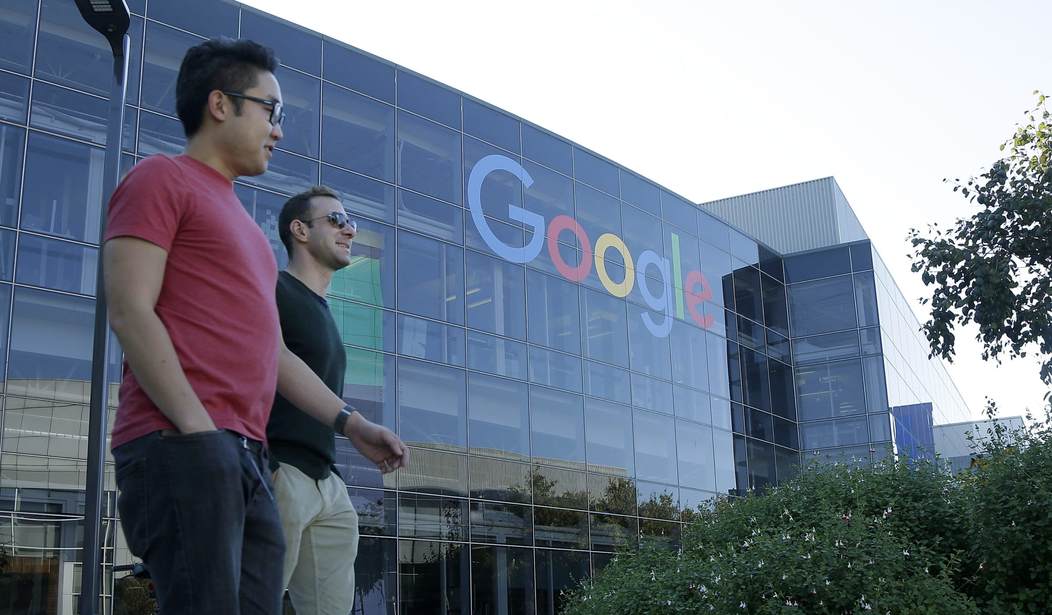NATIONAL HARBOR, Md. – Max Pappas, the manager of External Outreach and Public Policy Partnerships at Google, said nobody is “salivating more” about the possibility of more U.S. government regulation of U.S. technology companies than China.
“There’s been attacks coming on the U.S. tech companies, the center of our innovation, from both sides of the aisle. There’s nobody salivating more about the idea of the government coming after U.S. tech companies than the three giant Chinese companies that are the next three biggest in the world who would be glad to quickly move into that void that was created,” Pappas said during a “Trumponomics vs. Obamanomics” discussion at the Conservative Political Action Conference on Thursday.
“Our 21st century digital revolution is being regulated by a 20th century regulatory state built to deal with a 19th century industrial revolution – that’s a lousy fit,” he said to applause from the audience. “So it does need to be reconsidered. Why would we have an industrial revolution regulatory state governing this digital revolution and how much is that going to hold back life-improving, life-lengthening and life-changing innovations that could happen?”
Pappas said he’s “really optimistic” about the Trump administration’s economic agenda going forward. He recalled that a great deal of innovation took place in the 1980s under President Reagan and he hopes that occurs again under President Trump after the passage of tax reform.
“I’m really optimistic,” he said. “What that long boom [under Reagan] has brought us to is this digital revolution that we’re in the middle of.”
Pappas was asked if there are “potential clouds” forming that could stifle innovation.
“One of the things that I’ve been concerned about is what I’ve been hearing from some of my friends – one person, I think, framed it well. There are two things a new administration or anybody in public office – two paths they can take; one is to enact good policy and the other is to seek revenge against perceived political opponents,” he said. “And I think there are some that are thinking about spending time going after perceived political opponents.”
Pappas is concerned that going after political opponents could “distract some people from instead pushing full-force ahead in getting the government out of the way of the really amazing innovations that are coming out,” including self-driving cars and drones.
“It’s not well-known, but the thing that drones have been used the most for is the delivery of life-saving medicines in rural Africa where there are no hospitals. Of course, there are regulatory barriers in the U.S. that make the use of those really difficult,” he said.
“I’m worried that maybe the government doesn’t get out of the way fast enough. The pace of change is quick – with machine learning and artificial intelligence, it’s even quicker. So the ship of state moves slowly but innovation doesn’t unless the state gets in the way. One of things is the appointments – if the appointments came quicker of people who understand that we wouldn’t have to worry about some of the careers that are in place and blocking some of the changes that the recently elected administration is trying to get in place.”
Pappas predicted that a “long” economic boom would take place if “permissionless innovation” continues in the U.S.
“If it’s the precautionary principle that wins, we’re in trouble. If it’s the ‘permissionless innovation’ that continues, it’s going to be an amazing long boom,” he said.
Pappas said there are international challenges the U.S. faces around taxes.
“We’re the last big country to go away from a worldwide tax to territorial. The European tax models were able to keep up with us because we had an old outdated system. There’s already a proposal being pushed by the French through OECD to tax the U.S. tech companies,” he said. “It’s going to undermine the tax reform that’s been put in place, but don’t think it’s the only one. They’re going to realize that their tax models are going to have a hard time competing with our new tax reform.”
Katie McAuliffe of Americans for Tax Reform said the way Europeans are cracking down on U.S. technology companies is “crazy.” McAuliffe referenced investor George Soros criticizing giant U.S. tech companies.
“We just had George Soros a couple of weeks ago over in Europe basically saying bad things about our tech companies – why would you go over there and do that?” she said during the discussion. “Why would you encourage other companies to tax American companies when you’re American? It just doesn’t make sense to me.”









Join the conversation as a VIP Member